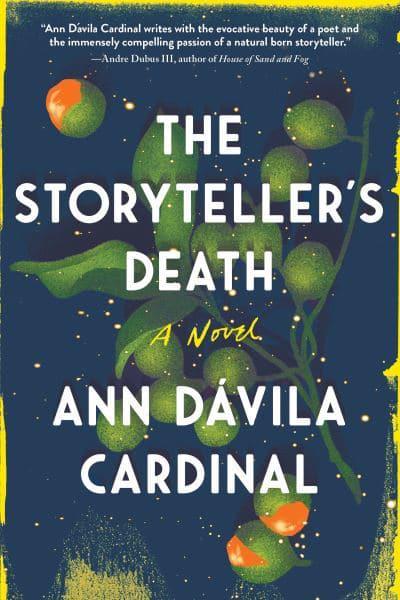ISBN-10. 1728250773. ISBN-13. 978-1728250779
Michael Sedano
Don’t allow that title to distract you, The Storyteller’s Death isn’t a conventional murder mystery where someone gets killed for being a bad poet. There’s murder, in the novel, there's also a lot of complexity that makes The Storyteller’s Death a lot of fun to follow, not only the story, but the way the author goes about putting together her forty-one chapters, and how she places her character into the dream dimension.
The Storyteller’s Death starts out sounding like a Young Adult story of a displaced 14-year old shuttled from middle-class New Jersey to monied-class Puerto Rico, from English to Spanish, from fractured homelife to an ambiente of familia on the island. There’s a lot of cultura underpinning the story, though subjects like racism, classism, statehood, don’t seem to take up a lot of room in Isla’s agenda.
Isla, it happens, is the girl’s name, Isla Sánchez. Isla is an island unto herself. She doesn’t fit in with her schoolmates, she knows she’s a gringa on the island. Primas and primos abound, but Isla spends most of her time with elders. Isla uses the isolation to wonder how she fits into the Sánchez clan and do some personal exploration and growth.
By her eighteenth summer, Isla has lived with visions—seeming hallucinations—wherein familia stories come to life. Cardinal doesn’t scoff at the dimension of spirits but allows Isla to participate in her fantasies, but these begin to have physical consequences. She is cut and bleeds. She’s grazed by a bullet. Isla begins to sense the urgency of the visions when she thinks of herself in the path of that hallucinatory bullet.
Cardinal approaches the spirit world matter-of-factly. While Isla’s freaked out that she sees this stuff happening around her, the author treats the events not as psychotic hallucinations but as elements of Isla’s reality. When a storyteller dies, the truths behind the stories disappear. Some stories, however, refuse to die. They infect Isla and she writes them in a journal to put them to rest.
One story won’t go down. Isla is haunted by the story of her great grandfather’s death. One cuento has him suicide. Another version, the man was murdered. Isla’s vision of the events unfold as the driving force of the plot. She dreams, she learns, she searches and finds.
Cardinal illustrates the saying about knowing and repeating history, except her gloss on it is by knowing what happened, you can fix things that are badly broken. Isla’s mother is badly broken. Those severe women in the Sánchez clan similarly were broken in spirit.
Isla and her familia didn’t know they were prisoners of their imagined history. The story demanded to be heard. Isla wasn’t the first to have these vision. Numerous people did, but wouldn’t let on. In the end, the storyteller’s death brings clarification, purification, and another chance.


No comments:
Post a Comment